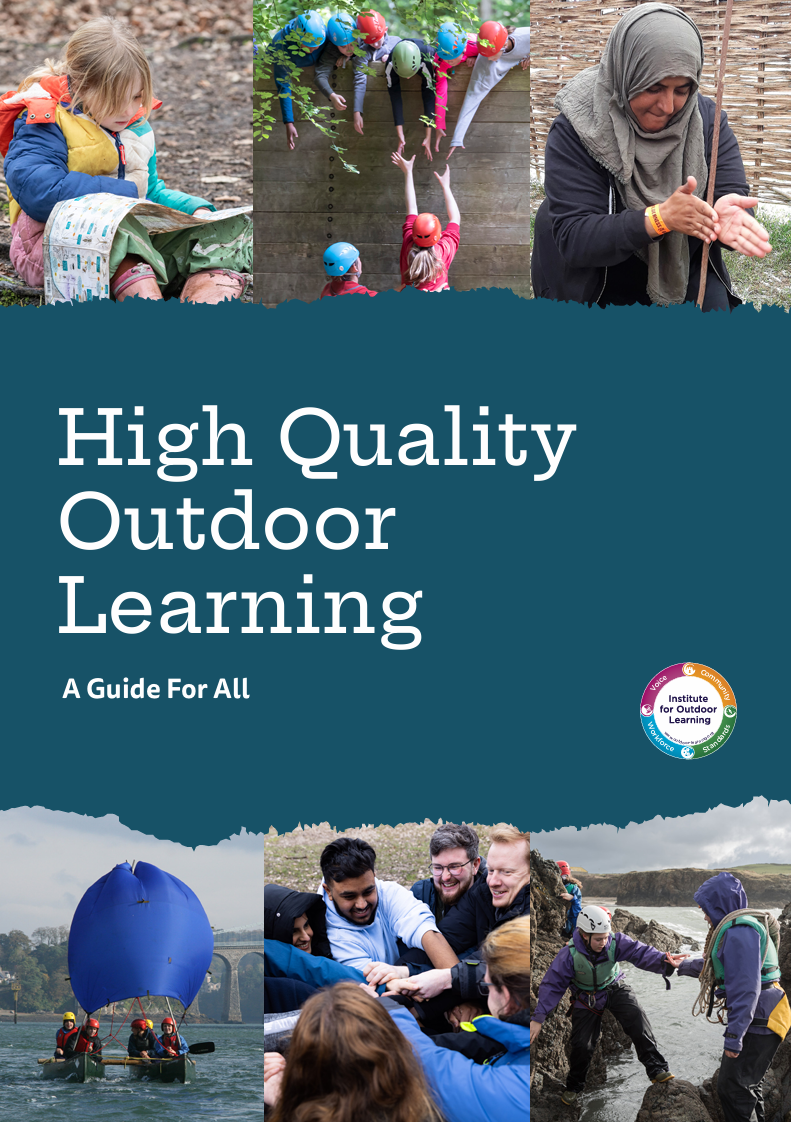High Quality Outdoor Learning 2025 is aimed at practitioners, providers, decision-makers, and non-specialists.
It brings together research, standards and practitioner experience from the UK and further afield. Successive drafts underwent extensive review by a broad selection of sector experts.
The guide consists of two main parts.
The first part sets out the societal context for outdoor learning and the potential benefits, supported by extensive research references. This section is also available as a separate document aimed specifically at policy and decision-makers.
The second part focuses on the structures, practice and outcomes associated with high quality outdoor learning
• Structures: These encompass physical and organisational features critical to effective practice and achieving outcomes.
• Practice: This covers programme delivery and activities that practitioners can influence. Core elements include safety management, inclusion, relationships, environmental awareness and sustainability, intended outcomes and continuity of learning.
• Outcomes: These are the results of outdoor learning experiences. They may be defined by participants, providers, funders, or emerge naturally from the process. Outcomes might reflect specific group characteristics, such as teamwork, or align with organisational frameworks.
The guide is not a prescriptive manual. Providers and practitioners can use the descriptions of high-quality practice and reflective questions as a basis for self-evaluation and improvement. It also informs external observers, helping articulate good practices that may otherwise be implicit. The guide combines global research and practice with a UK perspective and while it outlines common good practices, the diversity of outdoor learning settings and approaches means that quality must be interpreted in context.
